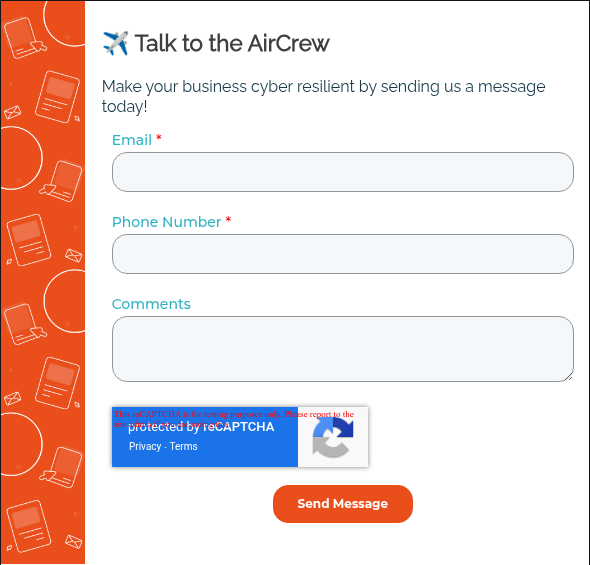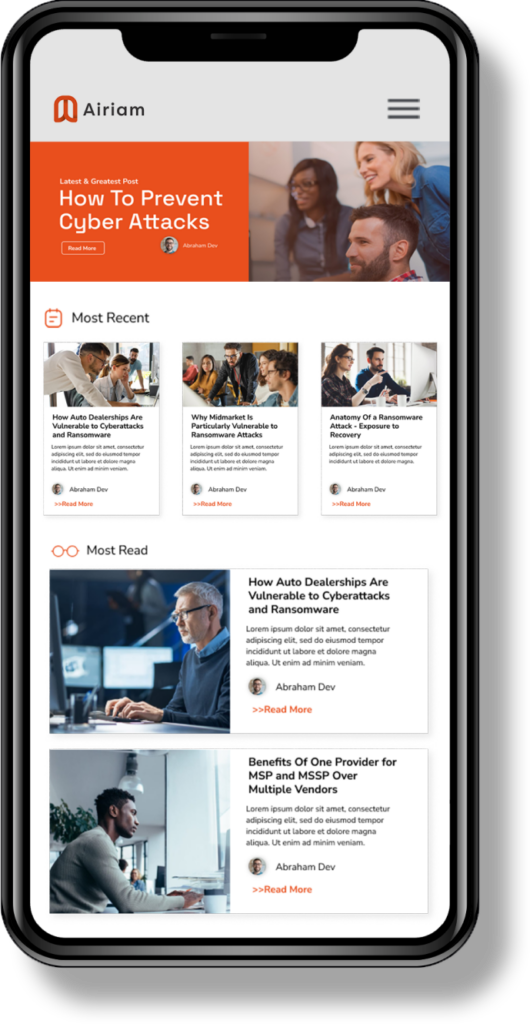The AI revolution isn’t coming…it’s here. Nearly half of small and medium-sized businesses are already using artificial intelligence (with the majority reporting measurable financial savings).
However, most SMBs are just scratching the surface of what’s possible.
Headlines focus on AI replacing jobs, but smart business leaders are finding something different. AI isn’t about elimination—it’s about amplification. The right AI applications can transform a 50-person company into a productivity powerhouse that competes with enterprises ten times their size.
The challenge isn’t whether to adopt AI in 2025. That choice should be obvious by now. Instead, it’s knowing which use cases will actually move the needle for your business. Generic AI tools won’t cut it. You need specific applications that solve real problems, protect sensitive data, and deliver measurable ROI.
Below, we’ve compiled 10 AI business use cases that SMBs are using to drive growth, reduce costs, and outmaneuver larger competitors. Practically every business (in any industry) can use these ideas to get started.
10 AI Business Use Cases
Customer Service & Support
1. AI-Powered Customer Chat Support
Today’s buyers expect instant, accurate responses 24/7, but that’s something traditional support teams struggle to deliver without breaking the budget.
AI-powered chat support changes the game. A well-implemented chatbot can handle the majority of routine inquiries instantly, from order status checks to basic troubleshooting. All you need to do is train your AI on specific product knowledge, support documentation, and common customer scenarios.
Private LLMs are great here because they can be trained on your exact business context while keeping customer data secure. Unlike generic chatbots, a custom solution understands your products, policies, and brand voice.
Why It Works: Custom AI chat support operates around the clock, maintains consistent brand messaging, and frees your human team to handle complex issues that actually require personal attention. The AI learns from each interaction to keep improving its responses.
2. Intelligent Help Desk Automation
Internal IT support often becomes a bottleneck as businesses grow. Employees spend valuable time waiting for password resets, software installations, and basic troubleshooting.
Intelligent help desk automation turns routine IT support into a self-service experience. Microsoft Copilot can integrate directly with your existing ticketing systems to:
- Automatically categorize requests
- Suggest solutions
- Resolve common issues without human intervention
The system learns from your IT team’s historical responses, creating a knowledge base that gets smarter over time. Password resets, software access requests, and standard troubleshooting can be handled instantly, while complex technical issues get properly routed to the right specialists.
Why It Works: Your IT team focuses on strategic projects instead of repetitive support tasks. Employees get faster resolution times, and you gain detailed insights into recurring issues that might indicate larger infrastructure problems.
3. Predictive Customer Success Management
Losing a customer costs 5-7x more than retaining one, yet most SMBs only react to churn after it’s too late. By the time a client cancels, the relationship damage is often irreversible.
Predictive customer success management takes a more proactive approach. AI analyzes customer behavior patterns (login frequency, feature usage, support ticket trends, and engagement metrics) to identify at-risk accounts before they reach the breaking point.
Private LLMs can process your CRM data, support history, and usage analytics to flag customers showing early warning signs. The system might detect that a client hasn’t used key features in weeks, has submitted multiple support tickets, or shows declining engagement patterns.
Why It Works: Your team receives actionable alerts with specific intervention recommendations. Instead of generic check-ins, you can address actual pain points before they escalate. This approach strengthens relationships and creates opportunities for upselling to satisfied customers.
Operations & Productivity
4. Document Generation & Management
Every business drowns in document creation (proposals, contracts, reports, and standard correspondence) that consume hours of valuable time. Your team spends more time formatting and writing than actually serving customers or growing the business.
Microsoft Copilot transforms document workflows by integrating directly into Word, Excel, and PowerPoint. It can draft proposals using your company templates, generate reports from existing data, and create presentations that match your brand standards. The AI learns your writing style and business context over time.
Plus, private LLMs can be trained on your specific document templates, legal language, and industry requirements. This creates consistent, professional output that maintains your brand voice while reducing creation time.
Why It Works: Teams save hours every week on routine document tasks. The AI handles first drafts, formatting, and data integration to allow your people to focus on strategy, customization, and client relationships rather than admin work.
5. Meeting Intelligence & Summarization
Meetings multiply faster than productivity. Teams spend hours in discussions, then waste more time trying to remember decisions and action items. Important details get lost, follow-ups fall through the cracks, and progress stalls.
Microsoft Copilot for Teams automatically records, transcribes, and summarizes meetings while identifying key decisions and action items. It can even generate follow-up emails and task assignments based on discussion content.
The AI captures who committed to what by when, eliminating the “I thought you were handling that” conversations that derail projects. It also creates searchable meeting archives, making past decisions easy to reference.
Why It Works: Teams spend less time in status meetings and more time executing. Clear action items improve accountability, and searchable transcripts become a valuable knowledge base for future reference.
6. Inventory & Supply Chain Optimization
Cash flow kills more businesses than competition. Too much inventory ties up capital, while stockouts lose sales and frustrate customers. Traditional forecasting relies on guesswork and seasonal patterns that no longer work in volatile markets.
AI transforms inventory management through predictive analytics. The system analyzes sales patterns, seasonal trends, supplier lead times, and external factors like weather or market conditions to optimize stock levels automatically.
Private LLMs can integrate with your existing inventory systems to process real-time sales data and supplier information to generate accurate demand forecasts. The AI identifies slow-moving inventory before it becomes dead stock and prevents stockouts on high-demand items.
Why It Works: Businesses reduce inventory carrying costs while improving order fulfillment rates. Automated reordering based on AI predictions frees up cash flow and eliminates manual tracking spreadsheets.
7. Predictive Maintenance
Equipment breakdowns don’t follow schedules. Unplanned downtime costs businesses an average of $50,000 per hour, while service businesses lose customers when critical systems fail unexpectedly.
AI predictive maintenance monitors equipment sensors, usage patterns, and performance metrics to identify potential failures before they occur. The system learns normal operating parameters and flags anomalies that indicate developing problems.
Private LLMs can analyze maintenance logs, sensor data, and equipment manuals to recommend specific interventions. Instead of replacing parts on arbitrary schedules, you perform maintenance exactly when needed (extending equipment life while preventing costly breakdowns).
Why It Works: Businesses report 25-30% reductions in maintenance costs and near-elimination of unplanned downtime. Teams shift from reactive firefighting to proactive equipment management that improves efficiency and safety.
Sales & Marketing
8. Personalized Email Campaigns
Generic email blasts get ignored. Modern customers expect relevant content that speaks to their specific needs, not one-size-fits-all messages that feel like spam.
AI email personalization analyzes customer behavior, purchase history, and engagement patterns to create targeted campaigns for different audience segments. The system can generate subject lines, customize content, and optimize send times for individual recipients.
Microsoft Copilot can draft email content based on your brand voice and campaign objectives, while private LLMs can integrate with your CRM to create highly personalized messages that reference specific customer interactions and preferences.
Why It Works: Personalized emails generate 6x higher transaction rates than generic campaigns. AI handles the heavy lifting of segmentation and content creation to help your team focus on strategy and relationship building.
9. Lead Scoring & Qualification
Not all leads are created equal. Sales teams waste time chasing prospects who’ll never buy while qualified leads slip through the cracks. Traditional lead scoring relies on basic demographics that miss important buying signals.
AI lead scoring analyzes multiple data points:
- Website behavior
- Email engagement
- Content downloads
- Interaction patterns
This helps identify prospects most likely to convert. The system also learns from your successful sales to refine scoring criteria continuously.
Private LLMs can integrate with your CRM and marketing tools to automatically qualify leads based on your specific sales criteria. The AI can even draft personalized follow-up messages based on each prospect’s demonstrated interests and engagement level.
Why It Works: Sales teams focus their energy on high-probability prospects, increasing conversion rates while reducing time spent on unqualified leads. Automated qualification guarantees no hot prospects get overlooked in busy periods.
10. Content Creation & SEO Optimization
AI content creation handles ideation, drafting, and optimization at scale. Microsoft Copilot can generate blog outlines, social posts, and web copy based on your brand guidelines and target keywords. The system maintains consistent voice while adapting content for different platforms.
Private LLMs trained on your industry knowledge can create highly relevant content that demonstrates expertise while incorporating SEO best practices. The AI can analyze competitor content and suggest topics that fill gaps in your content strategy.
Why It Works: Marketing teams produce more content without sacrificing quality. AI handles first drafts and SEO optimization to let your team focus on strategy, editing, and high-level creative direction.
Start Using AI in Your Business
These AI business use cases give you plenty of ideas to start implementing right now. Don’t feel too overwhelmed, though. It’s not about doing everything at once—focus on 2-3 use cases that address your biggest operational pain points and start there.
Whether you begin with Microsoft Copilot’s integration or deploy custom private LLMs for specialized needs, the important step is taking action. AI implementation requires careful planning, proper security protocols, and realistic expectations about timelines and outcomes.
Don’t let competitors gain the AI advantage while you’re still planning. We’ve helped SMBs (just like yours) through successful AI implementations: from initial strategy to secure deployment. We’ll help you identify the right use cases for your business, choose between Copilot and private LLM solutions, and implement AI tools that deliver measurable ROI while protecting your data.
Reach out today to get started.


